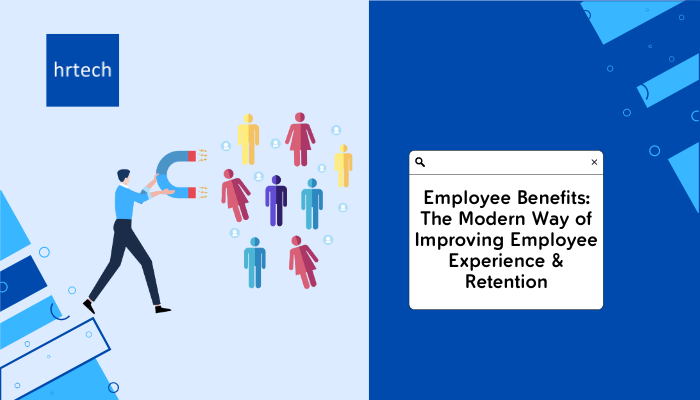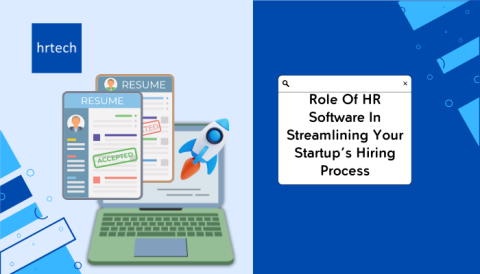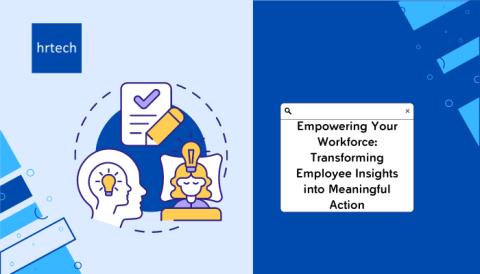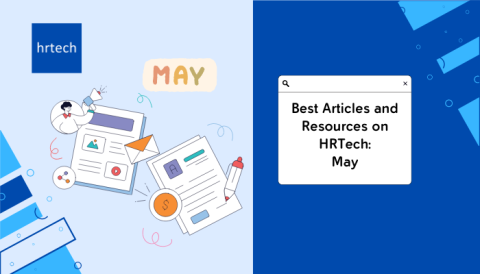Employee benefits refer to indirect or non-wage compensation offered to employees through programs, policies, or services. Check out here the importance & categories of employee benefits.
by Sriram Iyer, Founder & CEO, hrtech

Gone are the days when employees would work for any employer just out of dire need of a job. Today, organisations have to live up to the employees’ expectations and offer better work environments to attract and retain them. Business leaders are striving harder than ever to crack the code of enhancing workplace experience and they have found the answer in ‘Employee Benefits’.
What are Employee Benefits?
Employee benefits refer to indirect or non-wage compensation offered to employees through programs, policies, or services. These benefits are provided in addition to their regular salaries and intend to enhance their overall well-being. Providing employee benefits is the best way to add more value to employees’ health and financial security.
What is the Importance of Employee Benefits?
About 50% of employees quit their job within a year and nearly one-third (34.4%) of employees who left their job in 2022 had done so due to the lack of work-life balance and flexibility. When the sense of job dissatisfaction creeps in, employees tend to switch to better employers. Ignoring employee benefits can have severe repercussions. On the contrary, prioritising employee benefits can lead to many business advantages.
- Attracting & Retaining Top Talent
Employee benefits prove to be a crucial factor in improving employee experience as these benefits create a positive work environment. In today’s competitive market, offering attractive job benefits can help employers attract and retain top talent. Candidates often tend to compare the job benefits of various companies before accepting an offer.
Employees are 70% more likely to remain with their employees if they are happy with the job benefits offered(Source: ) - Improved Employee Satisfaction
Employee benefits potentially improve employee morale and increase job satisfaction. Benefits such as health insurance, retirement plans, and paid time off can reduce employee stress and improve work-life balance. This majorly contributes to improving employee satisfaction. - Increased Employee Engagement & Productivity
The ultimate goal of every business is to increase profits. While business performance is directly linked with employee performance, job engagement has a direct impact on employee performance. To improve business outcomes, leaders must focus on improving employee engagement. While low employee engagement can cost a company about $550 billion each year, a highly engaged workforce can increase business profits by 21%.
Offering attractive employee benefits can increase employee engagement. When employees feel that their employer is invested in their well-being, they are more likely to be engaged in their work and be more productive. - Building a Strong Employer Brand
Offering employee benefits is the best way to demonstrate a company’s commitment towards its employees’ well-being. Employees get a strong sense of belief that their employer cares for their well-being. This also leads to a positive reputation, which can help attract new customers and enhance brand image.
If employees are happy and satisfied with their job, they are more than 2x likelier to recommend their employer to others.(Source: LinkedIn)
Categories of Employee Benefits
SHRM conducted an Employee Benefits Survey in 2022 to rank the top benefits categories according to the importance given by employers. Here is the list of employee benefits:
|
Health Insurance benefits |
88% |
|
Retirement benefits |
82% |
|
Leave benefits |
82% |
|
Family care benefits |
70% |
|
Flexible work benefits |
70% |
|
Career growth benefits |
65% |
|
Financial benefits |
52% |
|
Wellness benefits |
46% |
|
Education benefits |
42% |
|
Technology benefits |
37% |
|
Transportation benefits |
12% |
|
Housing benefits |
9% |
Health Insurance Benefits
Employers can provide health insurance to cover medical expenses such as doctor visits, hospital stays, and prescription medications, which can help employees get the care they need. Many health insurance plans also cover preventive care, such as annual check-ups, screenings, and immunisations. This can help employees stay healthy and identify potential health problems early.
Retirement Benefits
Employers can offer a 401(k) plan and enable employees to contribute a portion of their salary to a retirement account. Employers may also offer a matching contribution to encourage employees to save for retirement. Moreover, employers can also offer a pension plan, which provides employees with a specific retirement benefit based on their years of service and salary history.
Leave Benefits
Employers can offer paid time off, sick leaves, family and medical leaves, bereavement leaves, and parental leaves to their employees. This helps in balancing their work and personal lives and can contribute to employee well-being and job satisfaction.
Family Care Benefits
Employee assistance programs, counselling services, and resources like adult and child day care centres or home health care providers enable employees to take care of their families while working.
Flexible Work Benefits
With telecommuting and remote working, employees can work from the location of their choice. It also allows them to adjust their work schedules to better fit their personal lives. To provide more work flexibility, employers can also offer compressed workweeks and allow employees to work longer hours over fewer days of their choice and sign off early on a few days.
Career Growth Benefits
Training and development programs, mentoring, coaching, and career planning programs can help your employees to develop their skills and advance in their careers. By offering career growth benefits, employers can help employees reach their full potential and achieve their career goals.
Financial Benefits
Employers can arrange Financial education and counselling programs to help employees improve their financial literacy and develop better money management skills. A popular benefit is Employee Stock Purchase Plans (ESPPs) where employees can purchase company stock at a discounted price, providing an opportunity to build wealth through long-term investment.
Wellness Benefits
These can include access to wellness programs that promote a healthy lifestyle such as cardio and yoga classes, smoking cessation programs, weight loss programs, and nutrition education. Additionally, employers can also provide gym memberships and mental wellness programs for the overall wellness of employees.
Education Benefits
Education benefits for employees are a set of benefits and programs that employers offer to support their employees’ educational goals and pursuits. These can include tuition fee reimbursement, student loan assistance, on-site training programs and education leaves.
Technology Benefits
Employers can provide company-issued devices, software and tools to employees to support their work. This also includes providing on-demand IT support and troubleshooting services.
Transportation Benefits
Employers can provide commuter benefits by paying for employees’ commuting costs. They can also provide employees with subsidised or free parking at or near the workplace.
Housing Benefits
While housing benefits are not very common, some employers offer these benefits to help employees with housing-related expenses. Employers can also offer relocation assistance programs and home-buying assistance to help them find a better place to live.
Final Word
If you are an organisation looking to enhance its employee experience and in turn, business productivity, employee benefits must form a critical component of your compensation package. By offering a comprehensive benefits package, you can not only attract and retain top talent but also considerably improve employee satisfaction and overall productivity.
Investing in employee benefit programs is an investment in your most valuable asset – People!
About the Author:

Sriram Iyer is the founder & CEO of hrtech, a Singapore- headquartered #hrtech market development and analyst firm. A Human Resources practitioner with over two decades of experience, he is also a Certified Strengths Coach and a passionate #hrtech advocate. In his career, he has played leadership roles with the Singtel Group Enterprise and Nasdaq-listed Cognizant Technology Solutions.





